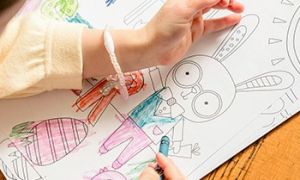

When unraveling whether a candidate has shortcut their Early Childhood Education (ECE) training, structured interviews and targeted questions can expose gaps in real-world competence. Fast-track or “vacation” pathways have raised alarm after thousands of candidates completed diplomas and graduate qualifications in months—sometimes with no genuine workplace experience and questionable oversight.
Across Australia, regulated staffing ratios aim to safeguard children in early learning settings. However, a growing number of incidents reveal that meeting these minimum requirements on paper doesn’t always translate into active, vigilant supervision. Below are several case studies that illustrate how gaps can emerge—even when legal ratios are nominally met.
When a family requests that male educators not change their child’s nappy, it touches on safeguarding, inclusion, and professional boundaries all at once. Here’s a way to navigate it thoughtfully.
If you need to report an early childhood service, there are clear steps you can take depending on the nature of the issue and your location. Here's a breakdown to guide you:
Stories shape how children make sense of their world. When we tell stories through a trauma-informed lens, we offer safety, build resilience, and honour each child’s experience. The following article provides information on Core Principles, Why It Matters, In Practice, Trauma-Informed Storytelling, 5 Examples of Trauma-Informed Stories and more.
Setting children up for a confident and joyful start to school begins long before the first bell. This guide brings together evidence-informed strategies, play-based activities, and partnership ideas to help preschoolers develop the skills, independence, and emotional resilience they need for their big leap into school.
This past week has challenged our sector—and stretched our hearts. But in the wake of uncertainty, we find courage. We come together. And we lead with purpose. This article is dedicated to helping educators process, reflect, and rise stronger.
As early childhood services increasingly consider CCTV to bolster child safety and meet compliance expectations, the discussion around surveillance is expanding beyond regulation into ethics, dignity, and children's rights. At the heart of this conversation lies one critical question: When does safeguarding begin to encroach on the very privacy it aims to protect?
In the heart of every early learning center, educators hold a uniquely powerful role—not just as teachers, but as advocates for children's safety and well-being. When unsafe, inappropriate, or unethical practices arise, educators are often the first to witness them. But too often, they feel powerless to act. It's time to shift that narrative.
The “under the roof” rule allows childcare centres to meet staffing ratios by counting all educators on-site, regardless of whether they are physically present in rooms with children. This means a centre may appear compliant on paper, even if individual rooms are understaffed.While originally intended to offer flexibility, educators say it’s now being used to cut corners—leaving children without adequate supervision and educators stretched beyond capacity.
 As an Educator in Australia, your pay rate falls under the Children’s Services Award 2010. This award states the minimum amount that an employer can… Read More
As an Educator in Australia, your pay rate falls under the Children’s Services Award 2010. This award states the minimum amount that an employer can… Read More
 When working as a qualified Early Childhood Teacher (with a university degree) within a service, your rate of pay will come from the Educational Services… Read More
When working as a qualified Early Childhood Teacher (with a university degree) within a service, your rate of pay will come from the Educational Services… Read More
 When working as a Diploma Qualified Educator your pay rate is from the Children's Services Award 2010. This Award states your minimum rate of pay… Read More
When working as a Diploma Qualified Educator your pay rate is from the Children's Services Award 2010. This Award states your minimum rate of pay… Read More
 When working as a Cert 3 Qualified Educator, your pay rate is from the Children's Services Award 2010. This Award states your minimum rate of… Read More
When working as a Cert 3 Qualified Educator, your pay rate is from the Children's Services Award 2010. This Award states your minimum rate of… Read More
 Educational Leaders play a crucial role in their early childhood service by ensuring that the educational program aligns with best practices and supports the holistic… Read More
Educational Leaders play a crucial role in their early childhood service by ensuring that the educational program aligns with best practices and supports the holistic… Read More
 In early childhood education and care, ratios are more than a technicality—they are a frontline safeguard. Every child deserves responsive supervision, emotional connection, and developmental… Read More
In early childhood education and care, ratios are more than a technicality—they are a frontline safeguard. Every child deserves responsive supervision, emotional connection, and developmental… Read More
 Here’s a comprehensive Mobile Phone and Smart Watch Policy tailored for early childhood education and care (ECEC) services in Australia, aligned with the latest 2025… Read More
Here’s a comprehensive Mobile Phone and Smart Watch Policy tailored for early childhood education and care (ECEC) services in Australia, aligned with the latest 2025… Read More
 With the new national child safety reforms kicking in on 1 September 2025, early childhood services like yours have a real opportunity to lead the… Read More
With the new national child safety reforms kicking in on 1 September 2025, early childhood services like yours have a real opportunity to lead the… Read More
 The Sea of Fish Challenge is a national initiative that invites children, educators, families, and communities to create and display fish artworks as a symbol… Read More
The Sea of Fish Challenge is a national initiative that invites children, educators, families, and communities to create and display fish artworks as a symbol… Read More
 Across the early childhood education and care sector, educators are sounding the alarm: current staffing ratios are insufficient to deliver safe, meaningful, and developmentally appropriate… Read More
Across the early childhood education and care sector, educators are sounding the alarm: current staffing ratios are insufficient to deliver safe, meaningful, and developmentally appropriate… Read More

A: While stencils can sometimes support fine motor skills and tracing practice, the EYLF and NQS...
See more...
Critical reflections play a vital role in the assessment and rating process in early childhood...
See more...
The following provides a list of outdoor activities for babies and toddlers that promote sensory...
See more...© 2009-2025 Aussie Childcare Network Pty Ltd. All Rights Reserved.

